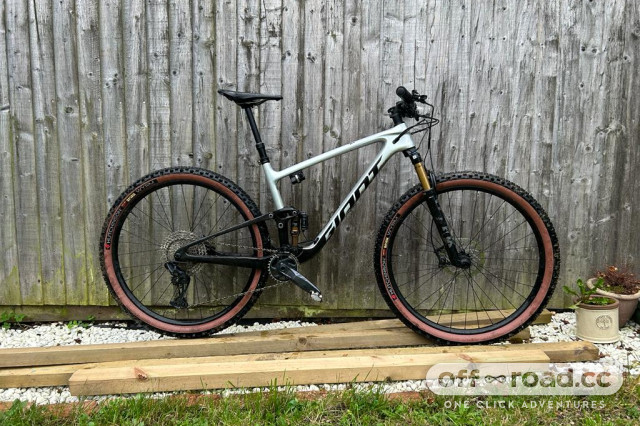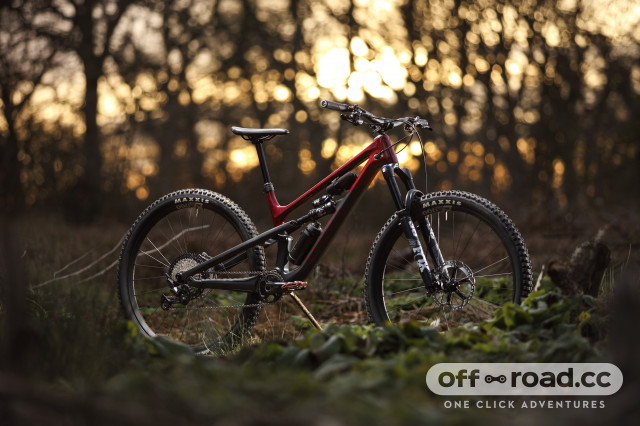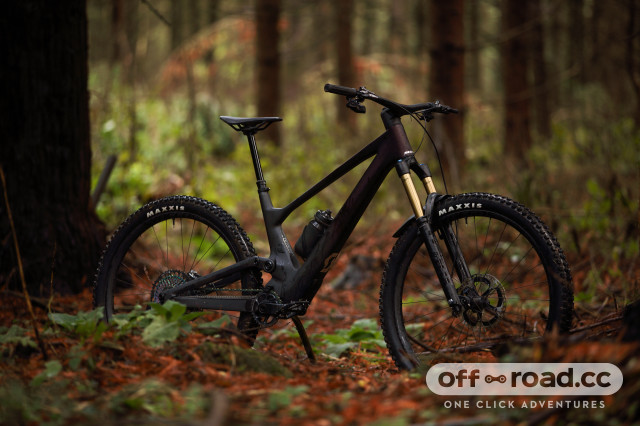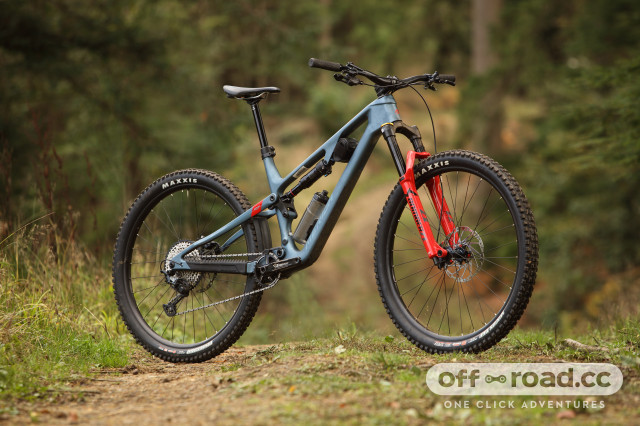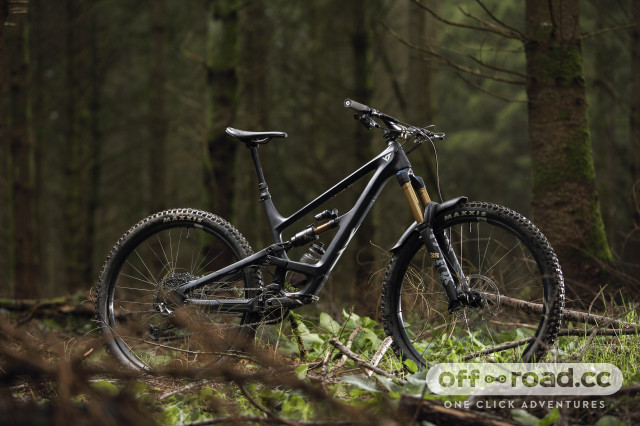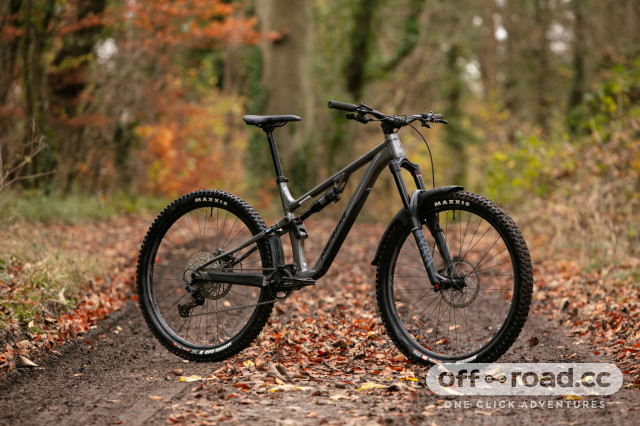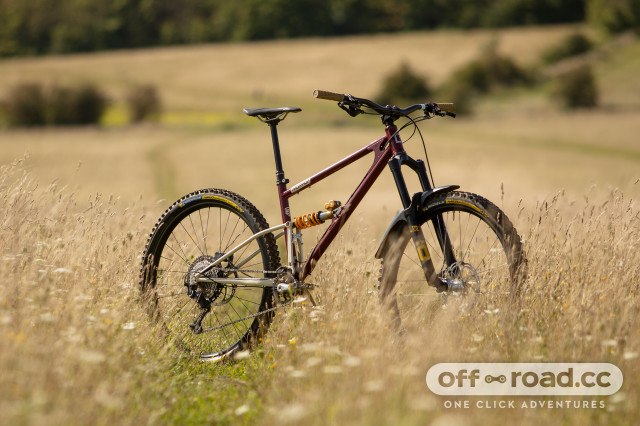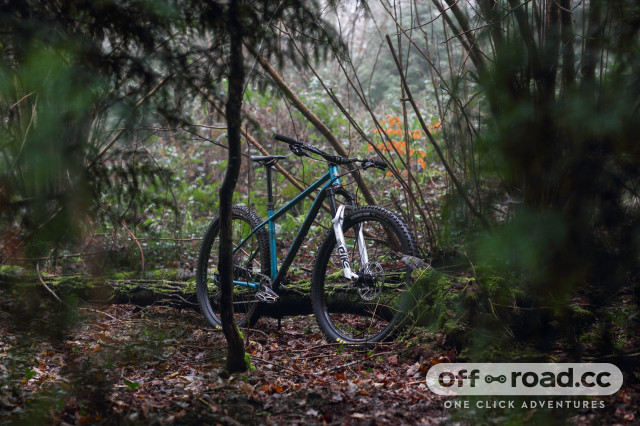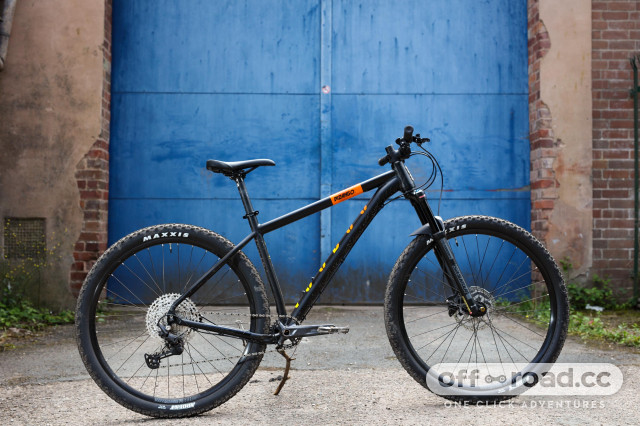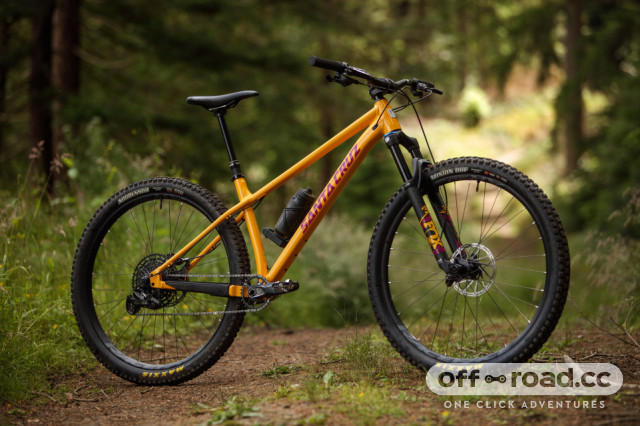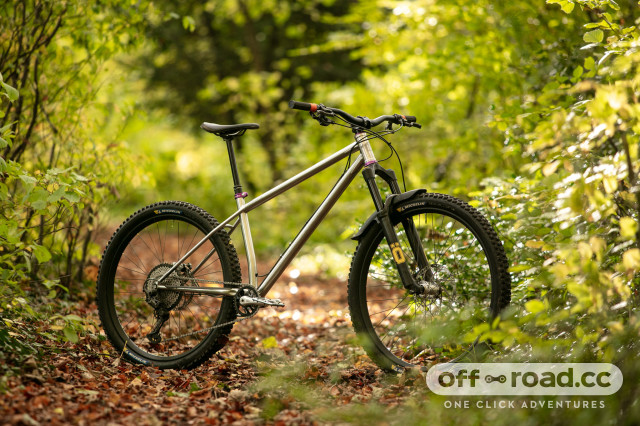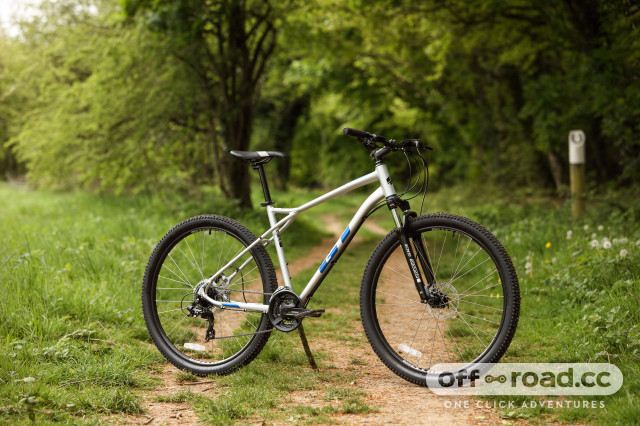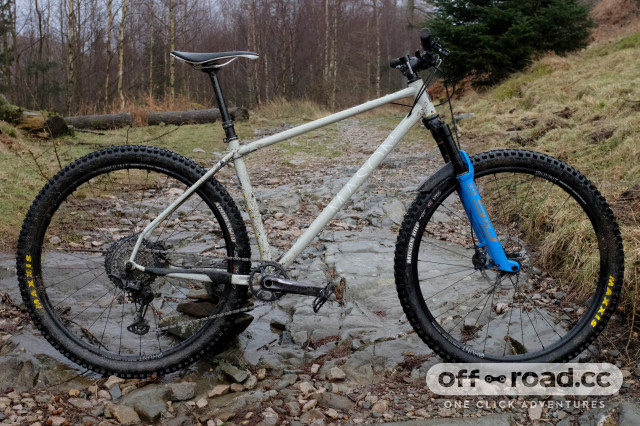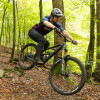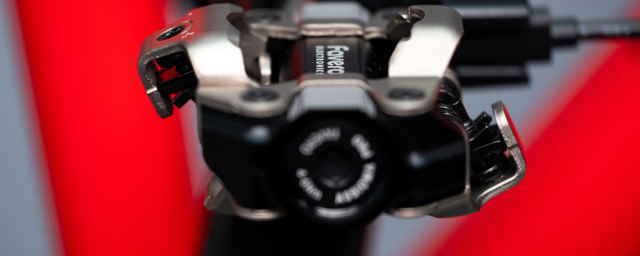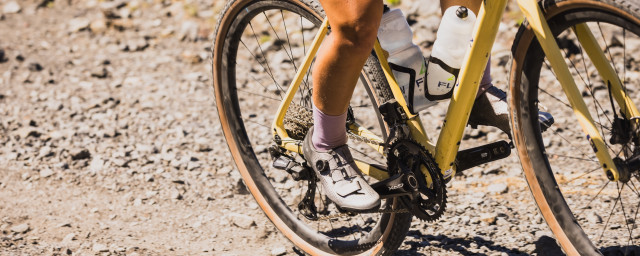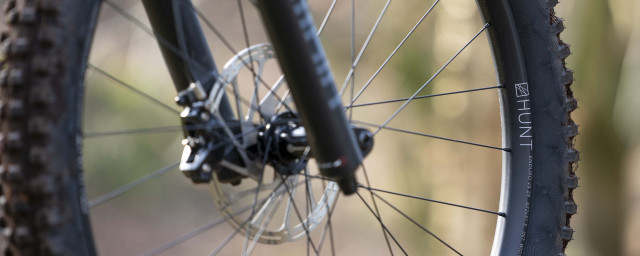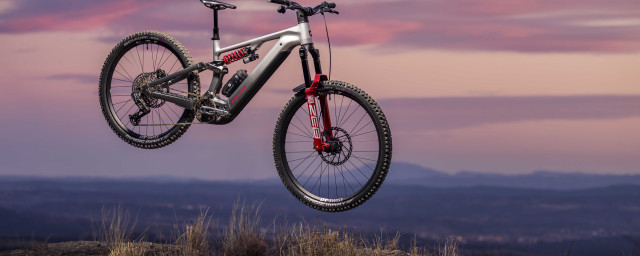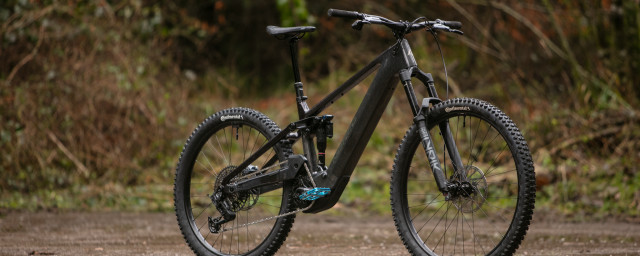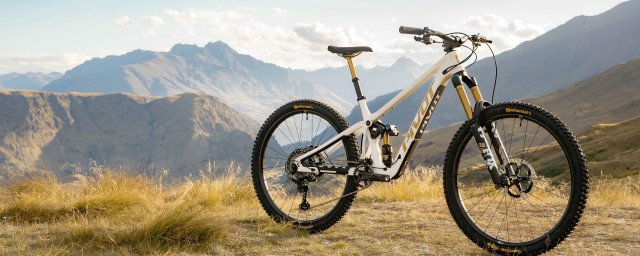Best mountain bikes 2025 - top options from cross-country to Enduro
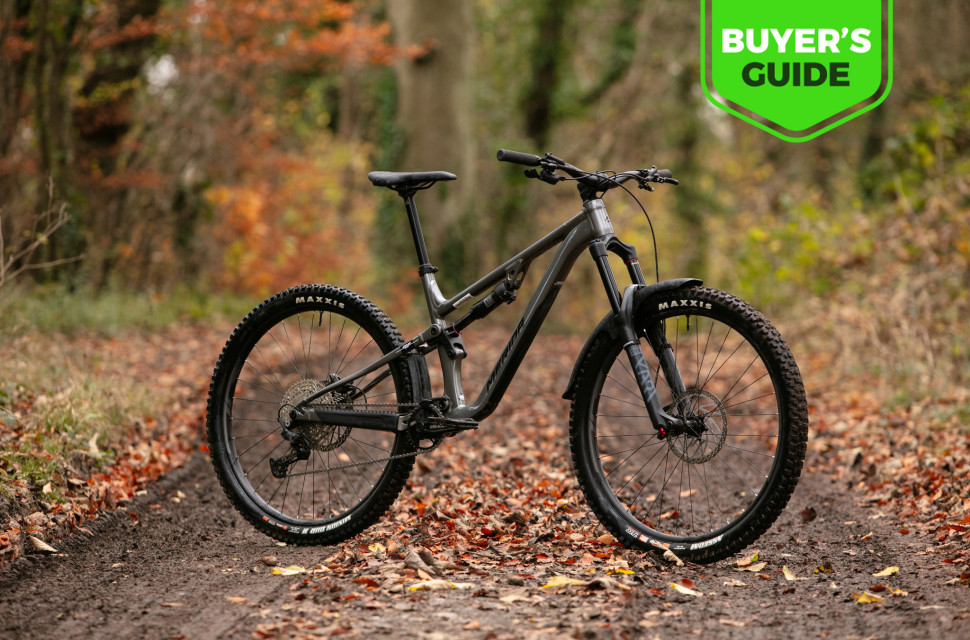
Mountain bikes have come a long way since the early days with new discipline-specific bikes now coming in an array of shapes and forms with varying degrees of suspension travel, too. It can get very complicated for the novice rider so we've made things easy for you with this guide to the best mountain bikes.
The best cross-country mountain bikes are built to climb just as quickly as they can descend and as such, they’re usually fitted with suspension figures from 80- up to 120mm in the most extreme cases.
The next step up is trail bikes and this area is the most competitive. These bikes come with suspension travel ranging from 120 to 160mm, so their range is much broader. These bikes are designed to be capable all-rounders. Trail bike geometries range massively from those that are more cross-country to numbers that won’t look out of place on an enduro bike.
Enduro bikes come with travel ranging from 160 to 190mm. These are designed to smash the gnarliest of trails, often against the clock. While they’re still built to behave when pedalling, they take downhill performance very seriously, usually coming with very progressive geometries that offer full support and stability when descending at speed.
Of course, hardtails do things a little differently as they have no rear suspension but that doesn’t mean that they’re not designed towards certain intentions. Again, their suspension travel ranges and their geometries slacken and get more progressive as their downhill capabilities edge more to the extreme.
At off.road.cc, we try our very best to test a range of mountain bikes to help you make the most educated purchasing decisions. Here’s a list of some of the top-performing cross-country, trail, and enduro bikes we’ve tested. Keep reading to learn more about the best mountain bikes or skip to the bottom for answers to the most frequently asked questions.
Best cross-country mountain bikes
Orbea Oiz M-Team AXS
£8,442
Orbea's Oiz is a cross-country bike that's built to cope with the ever-increasing rigours of modern cross-country courses and, with that, it extends its versatility well within the remit of trail riding. The Oiz comes with a lightweight carbon frame and this particular model holds no bars, coming with a full suite of Fox Factory suspension and SRAM's T-Type drivetrain.
As common on modern cross-country bikes, this one features a flex stay which takes the place of a Horst link, lowering weight while making maintenance simpler. There's space for two water bottles in the frame and as an Orbea bike, this one can be custom-painted to your preferences.
For more on the Orbea Oiz, check out the Orbea Oiz M-Team AXS mountain bike review.
Rockrider RACE 900S
£3,000
Decathlon's mountain bike brand, Rockrider is known for offering seriously good value and with word that the brand has entered the elite cross-country circuit, we had to see how its XC platform performs. Posing stellar value for money is the RACE 900S and for £3,000, you get a full carbon frame with 120mm of travel, a RockShox Reba fork and Reynolds carbon wheels. On top of that, there's a wireless SRAM GX AXS drivetrain.
And the ride is just as good as the bang for the buck as the frame showed good stiffness while providing a solid and efficient riding position. The bike's comfortable to ride and although its geometry isn't as progressive as other XC bikes, climbing was effective and general performance was nothing to sniff at.
If an excellent-value XC package is what you're looking for, find more details in our Rockrider RACE 900S mountain bike review.
Giant Anthem Advanced Pro 29 1
£7,500
Moving towards the opposite of the value scale (in comparison to the Rockrider) is Giant's Anthem Advanced Pro 29 1. However, for your £7,500, Giant has cut no corners, giving the bike a carbon frame and Fox's Live Valve technology. This bit rocks Giant's take on a flex stay suspension platform that delivers 100mm of travel at the rear wheel. There's also 110mm of suspension at the front.
As for its ride, this is one fast machine that's stiff under cornering loads, and the Live Valve tech ups the efficiency without the rider needing to lift a finger. It's fun, manoeuvrable and lively, providing a unique ride feel from this high-end XC bike.
For a deeper look at this bike, here's the Giant Anthem Advanced Pro 29 1 mountain bike review.
Best trail mountain bikes
Canyon Spectral 125 CF8
£4,300
As its name suggests, the Canyon Spectral 125 CF8 comes with 125mm of rear wheel travel combined with 140mm at the front. It’s a fun and lightweight trail ripper that’ll please any rider. Thanks to its little suspension and well-considered kinematic, it’s a keen peddler uphill but because of its progressive geometry, it’s incredibly capable when pointed downhill. It presents good value for money too. This bike rolls on 29-inch wheels.
Canyon says that the Spectral 125 is designed to offer a new experience compared to the Spectral and the brand has confidently hit the nail on the head. It’s just as fast, poised, and composed as the bigger travel bike but it’s much faster on the pedals, more supportive under compression and it certainly doesn’t hold back on the agility front.
If a short travel trail ripper is right up your street, here's the full Canyon Spectral 125 CF8 review.
Scott Genius 900 Ultimate
£9,899
As far as trail bikes go, the Scott Genius is a spendy one but for the investment that's now reaching £10k, the brand is giving you an awful lot of bike. It's built around Scott's stiffest and lightest HMX carbon fibre frame that features the cool internal shock tech that the brand has been making its name for.
For your money, the bike also provides top-end Fox suspension, carbon Syncros wheels, a one-piece carbon bar and stem, and a carbon-railed saddle. But money and build kit aside, the Genius offers a truly unique ride that doesn't detract from what makes any trail bike great fun. But it adds to the party in terms of stiffness as this is one of the stiffest full-suspension trail bikes around. Cornering feels very much like turning a hardtail while its suspension does a fantastic job of absorbing bumps. Its geometry, while standard trail bike geometry, is bang on the money too.
For a deep dive into the details of this bike, check out the Scott Genius 900 Ultimate mountain bike review.
Merida One-Forty 6000
£4,500
Geometry-wise, the One-Forty has firmly moved the goalposts. That’s because it comes with a super lengthy 510mm reach on a large frame, a figure that’s not even found on most enduro bikes. Offering both mullet wheel setups and full 29-inch hoops, the One-Forty offers a cracking descending character while comfortable and efficient pedalling which makes it an ideal choice for big and long days on the bike.
One-Forty uses flex stays in the place of a horst link. This saves precious grams while making maintenance a bit simpler. Each frame size gets a kinematic designed especially to suit harder riding or heavier riders, increasing the platform’s progression as the size grows.
Check out the Merida One-Forty 6000 review to find out more.
Best enduro mountain bikes
YT Industries Capra Core 4
£5,200
The Capra Core 4 is YT Industries’ range-topping enduro bike. As such, it comes stacked with top-shelf kit, including the Fox 38 Factory fork with 170mm of travel and the Fox X2 shock that damps 165mm of squish.
As far as enduro bike geometry goes, this one is a little more conservative but it's appreciably agile. It adopts a tweaked geometry with a steeper seat tube, a slacker head angle and a stretched reach. Coming from a direct-sales brand, it doesn’t carry the price tag of similarly specced rigs from other brands.
If this sleek enduro bike ticks your boxes, here's the YT Industries Capra Core 4 review.
Merida One-Sixty 500
£2,750
With its stellar ride quality, efficiency up a hill and ruthlessness down a hill, the Merida One-Sixty 500 is without a doubt the best enduro mountain bike for the cash. It's built around an alloy frame but the kit bolted onto it is all killer.
The result is a bike that's more than happy to be ridden in anger between the tapes as it combines a unique blend of stability and manoeuvrability. Its kinematic is awesome too, providing spritely pedalling but it's keen to open up and absorb bumps. It then offers the ability to switch the rear wheel size from the 29-inch wheel as standard to a 650b hoop while retaining its forward-thinking geometry.
If you're looking to get enduro racing without busting the bank, the One-Sixty 500 is a great starting place. Take a look at our Merida One-Sixty 500 mountain bike review to help make up yout mind.
Starling Cycles MegaMurmur
From £2,330
The Mega Murmur from Bristol-based brand, Starling Cycles is a hand-made steel-framed enduro bike that defies convention while offering top-level performance that'll please anyone who loves a planted and heavy-hitting ride. Other brands strive to build bikes stiffer and stiffer but the Mega Murmur takes pride in its compliant ride, which results in a bike that's easy to ride very, very quickly.
This bike gets a lot of what makes Starling's Murmur great, but it builds upon that solid foundation, adding a longer 455mm chainstay to the mix, as well as 165mm of rear suspension. Starling does things a little differently when it comes to the build kit too, providing potential customers with the opportunity to spec the bike how they like, dipping into a stock of components that meet the demands of the folk behind the brand.
For more on this bike, read the Starling Cycles Mega Murmur mountain bike review.
Best hardtail mountain bikes
- Stif Squatch Pro
- Voodoo Bizango
- Santa Cruz Chameleon R AL 29
- Starling Cycles Roost
- GT Aggressor Expert
- Mason RAW
Stif Squatch Pro
£2,749
The steel-framed Stif Squatch is a bike with a progressive geometry right at its heart. Built with compliant chainstays, it’s a hardtail that can be ridden quickly while dampening the harsh sting out of small trail features.
It gets a very slack 64-degree head tube angle but as it’s paired with a 130mm suspension fork, it doesn’t steepen heavily as it moves through its travel. It then gets a very steep seat tube, making this an efficient winch-and-plummet machine.
If an aggro, steel hardtail is right up your street, here's the Stif Squatch Pro review.
Voodoo Bizango
£750
The best mountain bikes don’t need to be expensive and the Voodoo Binzango is a shining example of that. While it doesn’t have the fancy bells and whistles of its pricier competition, it gets a well-sorted geometry that makes this an ideal first, or second bike for anyone who wants to hit the trails. The Bizango is a 29er with 120mm of travel, and it’s an ideal bike for anything the UK’s trail centres have to throw at it.
The seat tube angle - on a large - is rated at 74.5-degrees with a 461mm reach. The former places rider weight centrally and comfortably above the pedals while the latter offers plenty of room to shift that weight around. The reach isn’t massively long for a large frame but it keeps the front end well-behaved, planted, and easy to weight-up when getting you up a hill.
If the Voodoo Bizango tickles your fancy, this is the Voodoo Bizango review.
Santa Cruz Chameleon R AL 29
£3,200
The Chameleon is built to be an adaptable hardtail that can accommodate both a full 29-inch or a mullet wheel size. It comes with a range of mounting points, allowing the rider to load it up with bags, or simply shred their favourite trails.
This bike is graced with a reasonably progressive geometry that doesn’t take things too far, so it’s capable on the downs while comfortable if you’re looking for big miles. As far as geometry goes, the Santa Cruz Chameleon benefits from a 465mm reach on this large frame. This isn't long but it's definitely not short.
The 74.4-degree seat tube isn’t particularly steep but the pair results in a pretty spacious cockpit and, to a point, it can feel slightly stretched while seated when the 800mm Burgtech bar and 42.5mm stem are thrown into the mix.
If you like the sound of a shape-shifting hardtail, here's the full Santa Cruz Chameleon R AL 29 review.
Starling Cycles Roost
From £1,220
The Roost is Starling Cycles’ hardtail mountain bike that’s been designed to offer pure, unadulterated fun and longevity, and it does so in spades. It's a modern trail hardtail that squeezes every inch of fun out of any trail with an exhilarating and rowdy but confident and refined ride feel.
What makes the Roost special is that it's built around a stainless steel frame and while that ups the price a little compared to regular steel, it also ups the durability, making for a frame that'll look great for years to come. The frame we tested was already two years old.
The Roost achieves an excellent ride through Starling's careful geometry choices. These figures have resulted in a bike that ticks all of the boxes a trail hardtail should; it's fun, confident and super rowdy but without stretching into the realms of proper aggressive hardtails.
For more, give our Starling Cycles Roost mountain bike review a read.
GT Aggressor Expert
£550
Taking its place as the lowest-priced bike in this round-up is the GT Aggressor Elite. It may not get all of the mod-cons that you would expect from a modern mountain bike but during our test, we found it to still be plenty of fun and well-equipped enough for easier going, entry-level off-road riding.
The bike's Triple Triangle frame design adds a welcome level of compliance to the ride that'll be appreciated by those who want a more comfortable ride. It also boosts the Aggressor's capability, making it more than happy to take on the odd bit of singletrack. If you're on a budget and want to begin off-road cycling, this bike is well worth considering.
Check out the GT Aggressor Elite mountain bike review to learn more.
Mason RAW
£4,125
Mason's RAW is the brand's first ever mountain bike and after our testing, we found that it delivers. It's a bike that's aimed towards long-distance and fast off-road riding and thanks to its steel frame, it hits the mark while offering an engaging and supple feel.
Making this bike a little different from others is that it's well sorted with a tonne of mounting points, providing plenty of opportunity for heavier-going bikepacking epics. However, because of its bikepacking and distance focus, it may not be the most confident when it comes to more technical descending.
For more information, here's our super-detailed Mason RAW mountain bike review.
How to choose the best mountain bike
What is the best type of bike for mountain biking?
A trail bike is often an excellent place to start because these bikes are good all-rounders. But the best way to figure out what bike is best for you is to get out and ride a few. Whether that’s borrowing your mate’s or heading to your local trail centre’s rental facility. This will help you form your tastes and inform you of what you like, and dislike about certain kinds of bikes before finding one that suits you the best.
Lots of brands also offer demo days, where they’ll bring the whole range of bikes for you to try. The same goes for bike shops, too, and the benefit of these is that you’ll be able to test bikes from several companies. Sometimes there’s a small fee to pay, others you simply just need to sign up and head to the right trail centre.
Is a full-suspension mountain bike better than a hard tail?
Both full-suspension mountain bikes and hardtails have their pros and cons. Starting with the former, they’re much better at smoothing out bumps, which improves overall control at speed, while offering a more comfortable ride when you’re pedalling uphill. Full-suspension mountain bikes are easier to ride at higher speeds but because of the relationship between pedalling forces and how suspension works, they’re not as efficient when pedalling.
Hardtails are often chosen for their efficiency, as there’s no rear suspension that’ll move as the rider pedals. This helps massively when pedalling uphill because there’s no suspension to work against you. Often, hardtails are lighter, too, so they’re regularly spotted on the cross-country circuit. They also require far less maintenance, as there are no pivot bearings that’ll wear out with time.
For the trail rider, however, hardtails provide a fun and engaging ride that will never be found on a full-suspension bike, no matter how hard designers may try. Some even say that they’re the perfect starting place for new riders to begin honing their skills as they don’t have the rear-end forgiveness of a full-suspension bike. This will force riders to consider their line choice more, and thus find the smoother and faster line more effectively.
Is it better for a mountain bike to be too big or too small?
Like choosing a mountain bike, mountain bike sizing and geometry are big talking points and there’s no wrong answer. To merely skim the surface, a smaller mountain bike will feel more agile on the trail at the price of stability at speed, and through steeper sections. A bigger mountain bike will be more stable but not as agile.
What’s most important is that you can fit on your bike while being able to achieve the full range of movement towards the front and rear of your bike. On every brand’s website, each bike comes with a recommended size range and more often than not, it’s pretty accurate.
But it’s always the best idea to get hands-on with a bike and see how it feels to you in a shop before settling on the correct size for you. The bike should feel comfortable without feeling as if you’re stretched over it, or cramped.
What is the best frame material?
Alloy (aluminium), carbon, titanium or steel. Each frame material offers its own unique properties. Alloy is often found on lower-end bikes and is favoured for its low cost and durability. It’s also rather environmentally friendly as it can be recycled, and it produces fewer emissions during manufacturing. Frames made from alloy can feel harsh, however.
Steel is known for a special blend of stiffness and compliance. As such, it’s usually used to build mid to high-end hardtails. It’s not the lightest material on the market but it offers a good deal of strength. It’s also one of the most environmentally friendly materials as it can be recycled and doesn’t produce as much CO2 throughout the whole process.
A majority of higher-end bikes come built with carbon-fibre frames. Brands choose carbon to build their bikes with because more often than not, it’s lighter in weight and stiffer than its metal counterparts. It also allows the designers to create more attractive shapes.
Titanium is then reserved for the highest-end bikes, which mostly take the form of hardtails. Not only is titanium expensive, but it’s notoriously difficult to work with. It’s desired for its strength-to-weight ratio and its ease of repair when damaged or scratched.


